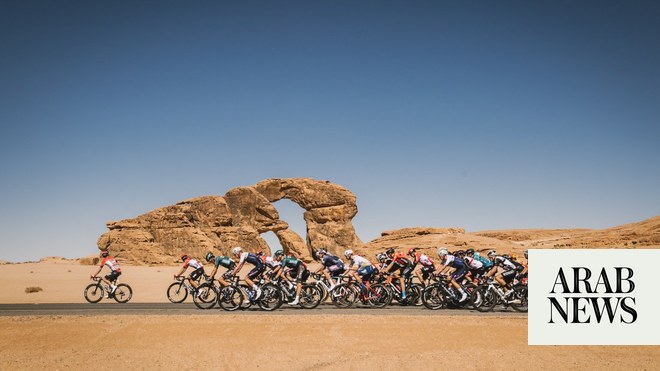
he abrupt eviction of Chris Froome and Geraint Thomas from Sir Dave Brailsford’s Tour de France lineup ensures that, for the first time in several seasons, this year’s race will begin without a past British yellow jersey winner in the peloton.
Since 2012, British champions have dominated the three-week race, through Bradley Wiggins, Chris Froome and Geraint Thomas. That serial success has been interrupted only in 2014 and 2019.
But in this most volatile of years, Brailsford has finally reached the end of his British production line and instead, a Colombian, Egan Bernal, supported by an Ecuadorian, Richard Carapaz, will be this year’s model for Team Ineos. Bernal and Carapaz both won Grand Tours in 2019, the Tour and Giro d’Italia respectively.
At the time of acquiring Carapaz for his all-star lineup, Brailsford’s move for the 27-year-old seemed greedy. Now, with Froome and Thomas struggling to recapture former glories, it looks a smart move. The only Briton remaining in his 2020 Tour lineup is the team captain and hardened campaigner, Luke Rowe.
Eight years ago, in the deliriously successful summer of 2012, the British took over road cycling. Now, though, that era is drawing to a close.
To the disbelief of most European fans, Bradley Wiggins won almost everything that season: his buildup races to the Tour, the Tour itself and then a time-trial gold medal in the London 2012 Olympics. There were no less than seven British stage wins in that July’s Tour, with reigning world road race champion, Mark Cavendish, taking three stage wins, Wiggins two, and Froome and David Millar one apiece.
The leadership torch passed to Froome in 2013. He didn’t disappoint, taking his first overall win, while Cavendish bolstered his stage-wins tally with two more victories. Froome’s startling performance and, in particular, his domination of Mont Ventoux, one of cycling’s most feared climbs, fuelled the first resentments towards him and his team’s success.
In 2014, Brailsford left Wiggins out of Team Sky’s Tour lineup. It was, he said, using language that echoes what he has said about both Thomas and Froome’s exclusion from this year’s race, a “very tough decision. But my job is to pick a team to win.” Froome, though, crashed out of the Tour and Team Sky’s ship became rudderless, listing badly as first Richie Porte and then Thomas failed to step up.
In Paris that year, as the Tour ended, a humiliated Brailsford was spitting teeth. It was that experience that hardened his resolve, evidenced again with his latest team selection, to never stand still or to pick a team based on past achievements or sentiment.
Yet it is Thomas’s exclusion that is perhaps the biggest surprise. Unlike Froome, there was no career-threatening injury to recover from and no transfer wrangle to distract. After the bitter disappointment of finishing second last year, the Welshman had been expected to be ready and motivated for this year’s Tour, but his catastrophic form in last week’s Critérium du Dauphiné left Brailsford with little choice.
Another issue may have been the loss of the longstanding sports director, Nicolas Portal, who died suddenly of a heart attack last spring. Both Thomas and Froome were steered to Tour success by Portal and their travails since cycling’s restart last month have only highlighted his absence.
Cavendish, meanwhile, has become sprinting’s forgotten man, going through the motions but consistently failing to deliver, even in lesser races. His recovery from the Epstein Barr virus and clinical depression has been a long and painful one. With that further stalled by lockdown and the enforced break from racing, he is yet to rediscover the speed that once made him almost unbeatable. At 35 he, like Thomas and Froome, is in the twilight zone.
What was once a deluge of British success may now become a trickle. There are other British talents – the 25-year-old Tao Geoghegan Hart and the Yates twins, Adam and Simon, spring to mind – but already they are in danger of being overtaken by Latin American and Slovenian riders, now established as the coming forces in Grand Tour racing.
Since the summer of 2012, there have been six overall wins, nine podium finishes and 27 stage wins achieved by British riders in the Tour de France. That domination is now at an end.
There has, of course, been success elsewhere, too, in the Giro and the Vuelta a España, Paris-Nice and the Dauphiné. These are all prestigious races to those weaned on the culture of European racing, but for much of the British fanbase, it is only the Tour that really matters.
Brailsford, a roadside spectator long before he was a team supremo, has an enduring love for his sport that will survive the decline of his British superstars. Whether the partisan fans who celebrated those years of British domination feel the same way remains to be seen.












